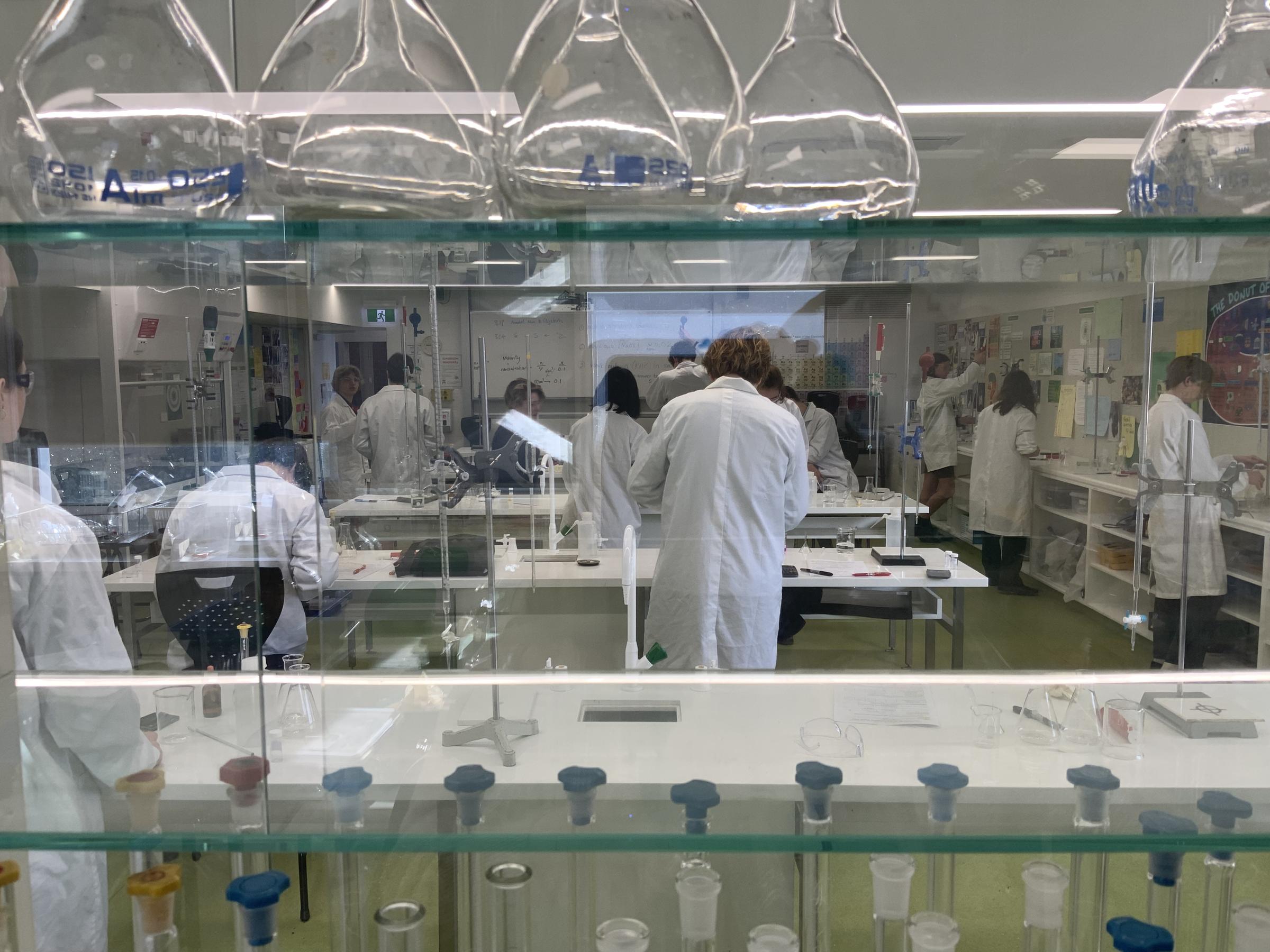IBDP Chemistry

Group 4 | Chemistry
| 🎓 Level | HL & SL |
|---|---|
| ⏱ Hours | 150 (SL) or 240 (HL) |
| 📚 Prerequisite | None |
| ℹ️ IB Course Information | Link (HL) Link (SL) |
Each of the Experimental Sciences has the same course structure:
The Standard Level course involves 150 indicative teaching hours over two years. It consists of core material (110 hours), practical work (20 hours), an individual scientific investigation (10 hours) and a collaborative sciences project (10 hours), in which students from all Science subjects cooperate on an investigation.
The Higher Level course involves 240 indicative teaching hours over two years. It consists of the SL core material plus additional HL material (total of 180 hours), practical investigations (40 hours), an individual investigation (10 hours) and a collaborative sciences project (10 hours).
What will I learn?
Chemistry is concerned with the study of the materials in our environment, their properties and the ways in which they react with each other. Laboratory work is an integral part of the course and has a direct bearing on the student’s growing body of descriptive and theoretical chemistry
Topics covered in Chemistry are divided into two overarching themes:
- Structure: the nature of matter from simple to more complex forms
- Models of the particulate nature of matter
- Models of bonding and structure
- Classification of matter
- Reactivity: how and why chemical reactions occur
- What drives chemical reactions?
- How much, how fast and how far?
- What are the mechanisms of chemical change?
Why should I consider this course?
Chemistry is an experimental science that combines academic study with the acquisition of practical and investigational skills. It is often called the central science, as chemical principles underpin both the physical environment in which we live and all biological systems. Apart from being a subject worthy of study in its own right, chemistry is a prerequisite for many other courses in higher education, such as medicine, biological science and environmental science, and serves as useful preparation for employment in many fields.
Assessment
| Component | Requirement | % |
|---|---|---|
| Individual Investigation | 3,000 words (10 hours) | 20 |
| Paper 1: Multiple choice & data based questions | 1.5 hrs (SL) / 2 hrs (HL) | 36 |
| Paper 2: Short Answer & Extended Response | 1.5 hrs (SL) / 2.5 hrs (HL) | 44 |
What Skills does this course provide?
The Diploma Programme chemistry course allows students to develop traditional practical skills and techniques and to increase facility in the use of mathematics, which is the language of science. It also allows students to develop interpersonal skills, and digital technology skills, which are essential in 21st century scientific endeavour and are important life-enhancing, transferable skills in their own right
Through studying chemistry, students should become aware of how scientists work and communicate with each other. While the scientific method may take on a wide variety of forms, it is the emphasis on a practical approach through experimental work that characterizes the science subjects.
The aims enable students, through the overarching theme of the Nature of science, to:
- develop conceptual understanding that allows connections to be made between different areas of the subject, and to other DP sciences subjects
- acquire and apply a body of knowledge, methods, tools and techniques that characterize science
- develop the ability to analyse, evaluate and synthesize scientific information and claims
- develop the ability to approach unfamiliar situations with creativity and resilience
- design and model solutions to local and global problems in a scientific context
- develop an appreciation of the possibilities and limitations of science
- develop technology skills in a scientific context
- develop the ability to communicate and collaborate effectively
- develop awareness of the ethical, environmental, economic, cultural and social impact of science.
What Pathway Options does this course provide?
Chemistry is a pre-requisite subject for many tertiary science and applied science degrees. Chemistry also helps students to build their general scientific literacy which is essential for all members of our community.
